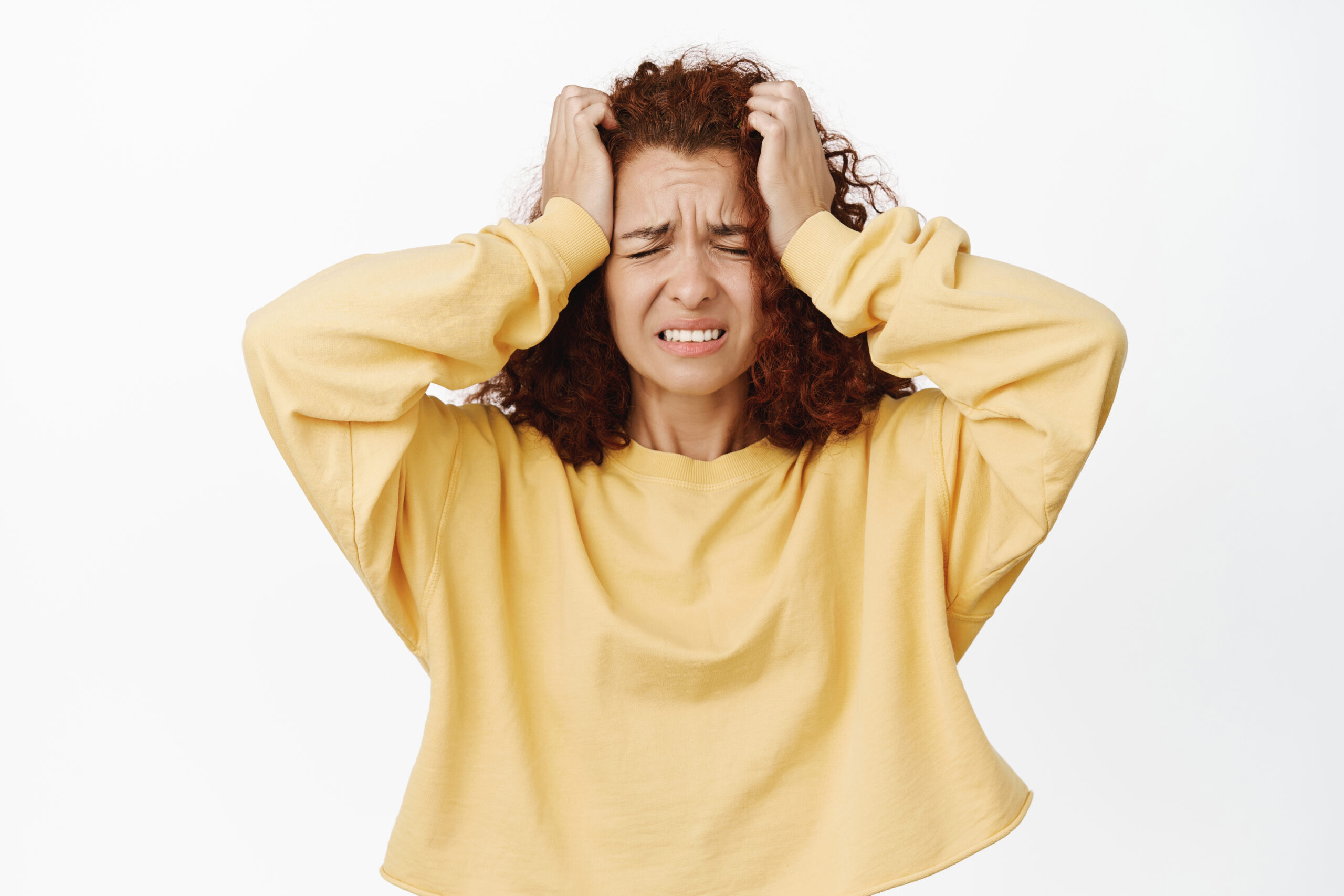Starting from the question of what stress is, there are many answers – one of the first theories indicates that it is a change in the environment causing great tension (the remainder is the definition of a stressor); others show it as a set of psychophysiological reactions to situations.
Currently, the most famous theory of Lazarus and Folkman![]() is based on the relationship between man and his environment, which lasts throughout his life and is constantly monitored and cognitively assessed. In the individual's opinion, stress is a relationship that is burdensome, threatening, or exceeds his or her resources.
is based on the relationship between man and his environment, which lasts throughout his life and is constantly monitored and cognitively assessed. In the individual's opinion, stress is a relationship that is burdensome, threatening, or exceeds his or her resources.
From a biological point of view, stress is caused by, among others, the amygdala, hippocampus, sympathetic nervous system, and the HPA axis – hypothalamus, pituitary gland, and adrenal glands. Stress can be compared to a hefty dose of energy that helps people survive – it turns on the so-called fight or flight response![]() .
.
Stress is usually accompanied by unpleasant feelings caused by an increasing level of arousal and the body's preparation for the already mentioned fight or flight, i.e., facing a threat or avoiding it/running away.
Undoubtedly, the mechanism that once saved people's lives – giving them the strength to respond to threats physically – is often inadequate and overused because many situations perceived as threatening require a form of reaction other than fight or flight. Additionally, today's world exposes people to many stressors, which means that people function in a constant state of increased (even minimal) arousal, which may result in so-called long-term/chronic stress, leading to several health and mental difficulties.
It is important to remember that stress is felt by every healthy person with a nervous system – it is an evolutionary legacy from our ancestors, which is why stress was, is, and will be present in human life. It is impossible to eliminate stress from your life, but there are several techniques that allow you to reduce its occurrence, alleviate its effects, and permanently reduce the level of arousal.

It is usually said that stress is bad, harmful, and adversely affects the body and psyche. Well, it's true, but not all of it. It is worth distinguishing stress into eustress and distress, as well as short-term and long-term stress. Stress mobilizes the body to act; it increases the level of arousal.
Eustress![]() is the so-called positive stress, which favors a person and their effectiveness – the optimal level of arousal – and can, for example, strengthen concentration or add energy and willingness to act. During eustress, you can feel a pleasant thrill, butterflies in your stomach, and a surge of strength.
is the so-called positive stress, which favors a person and their effectiveness – the optimal level of arousal – and can, for example, strengthen concentration or add energy and willingness to act. During eustress, you can feel a pleasant thrill, butterflies in your stomach, and a surge of strength.
Distress![]() is a phenomenon in which the arousal level goes beyond the area of beneficial stress and exceeds the moment of optimum (best functioning). You begin to feel the negative effects of stress more strongly. Your efficiency and quality of action decrease significantly, and remaining in this state for a long time leads to exhaustion. As you can see, from the point of view of evolution and human functioning, stress also positively impacts performance. The difficulty is learning to reduce stress levels to the optimum.
is a phenomenon in which the arousal level goes beyond the area of beneficial stress and exceeds the moment of optimum (best functioning). You begin to feel the negative effects of stress more strongly. Your efficiency and quality of action decrease significantly, and remaining in this state for a long time leads to exhaustion. As you can see, from the point of view of evolution and human functioning, stress also positively impacts performance. The difficulty is learning to reduce stress levels to the optimum.
The pattern of stress reaction depends on the duration and level of activation (strength of stress, type of stress, amount of negative stimuli).
The biological mechanism of stress![]() is a complex process that includes reactions such as:
is a complex process that includes reactions such as:
Those mechanisms are responsible for two biological mechanisms: the sympathetic autonomic system![]() and the hypothalamus-pituitary-adrenal hormonal system
and the hypothalamus-pituitary-adrenal hormonal system![]() .
.
Lifestyle has a significant impact on our health and well-being. Physical activity is not only about taking care of your appearance – it is effective prevention. Take care of your good mental condition, which, when attacked by stressors, contributes to many negative effects![]() , like:
, like:
There are also some psychological effects of stress![]() , e.g.:
, e.g.:
Moreover, the behavioral effects of stress![]() include:
include:

During short-term stress![]() , we can observe the following:
, we can observe the following:
The problem of excessive stress increases with the progress of civilization and the rising standard of living.
Chronic stress![]() leads to far-reaching changes in the body and behavior. Immune system dysfunction (reduced body resistance) contributes to the increased incidence of various diseases. Long-term stress is also a cause of the development of depression and post-traumatic stress disorder (PTSD).
leads to far-reaching changes in the body and behavior. Immune system dysfunction (reduced body resistance) contributes to the increased incidence of various diseases. Long-term stress is also a cause of the development of depression and post-traumatic stress disorder (PTSD).
Severe stress disrupts the functioning of the hippocampus – a small structure in the temporal lobe of the brain that is mainly responsible for memory. It can lead to damage to this part of the organ, as a result of which the hippocampus shrinks or does not develop properly.
Neurotic disorders are also a consequence of constant mental tension and negative emotions.
The effects of chronic stress include problems with sleep, nervousness and lower tolerance to subsequent stressors (even a seemingly trivial matter can throw you off balance), lower motivation and effectiveness of action, addictions (if the tension is relieved by, e.g., alcohol), lower well-being or even depression, increased or weight loss, decreased immunity – more frequent infections, skin problems, hair loss, chronic tension in the body resulting in pain and injuries.
Modern psychology, however, tends to approach stress relationally as an imbalance between the resources or capabilities of the individual and the demands of the environment.
Factors causing stress – stressors![]() – can be minor problems, everyday dilemmas, or major life changes, e.g., traumatic events of catastrophic proportions affecting entire groups of people (wars, natural disasters), serious threats affecting individuals or several people.
– can be minor problems, everyday dilemmas, or major life changes, e.g., traumatic events of catastrophic proportions affecting entire groups of people (wars, natural disasters), serious threats affecting individuals or several people.
The Social Responsiveness Rating Scale![]() (SRRS) defines the events that are the source of stress, and the values assigned to them are arranged in descending order – from the most to the least stressful event. According to this scale, types of stressors include:
(SRRS) defines the events that are the source of stress, and the values assigned to them are arranged in descending order – from the most to the least stressful event. According to this scale, types of stressors include:
Coping with stress![]() will determine the individual's cost when confronted with stress.
will determine the individual's cost when confronted with stress.
When stressed, we sometimes start to behave chaotically or irrationally. From predispositions, character or the so-called resistance to stress depends on the attitude we adopt in a situation of increased tension.
Coping with stress constantly changes cognitive and behavioral efforts to deal with specific external and internal demands that the person appraises as taxing or exceeding their resources.
Let's start recognizing stressors – not only the big ones but also the small ones related to everyday life. Identified stress is an easier-to-weight enemy that needs to be “disarmed.” Let's develop ways that trigger negative emotions and make it easier to deal with difficult situations.
To deal with stress effectively, it is worth, first of all, expanding your self-awareness and noticing when it appears most often, what exactly is a stressor for you, and clarifying it as much as possible.
A more minor and more specific stressor is much easier to deal with. Think about what resources you have (skills, opportunities, knowledge, experience, etc.) to deal with a given situation, build a specific picture of the situation you are striving for, think about what you can influence and what actions you can take and what tools do you need it to feel better and more confident in stressful situations. Negative, challenging thoughts that lower your self-confidence will not positively impact your stress level. Also, watch out for the so-called thought traps, including wishful thinking, pessimism, or blaming yourself or others. Notice and appreciate what you have instead of thinking about what you don't have.
The effect of a stressful situation may be to classify it as a challenge rather than a stressor. We learn throughout our lives, and everyone has the right to make mistakes. It is worth working on yourself, becoming aware of the threats, and naming directly what triggers negative emotions in us.
Many international organizations have addressed the issue of psychosocial risks, including work-related stress. Actions have been taken to increase society's awareness of the adverse effects of chronic stress and poor well-being.
There are many reasons why patients visit psychologists and psychiatrists. Excessive stress has long-lasting harmful effects. It is worth deciding on a specialist consultation with a psychologist or psychiatrist. A healthy lifestyle is not only the absence of diseases but also psychophysical well-being, which is threatened by excessive stress.
Psychologists can help you, e.g., with these areas:

To effectively counteract the effects of stress, it is worth considering psychological or psychiatric treatment![]() .
.
The situations when should you consult a psychiatrist include:
Some of the techniques for dealing with stress![]() are:
are:
Stress is a biological reaction intended to support a person in survival – it gives them energy to fight or flight, thanks to which they can cope with the threat. Unfortunately, nowadays the mechanism that is used to protect life has become harmful. Many situations, even everyday ones, are perceived as threatening. Constantly functioning under stress brings a number of difficulties and uncomfortable symptoms that most people do not want to feel. Although stress cannot be eliminated from life, there are known and available solutions and techniques that support stress management, alleviate its effects, and make it easier to cope with it. If you feel that stress is your problem, don't worry, you can deal with it.